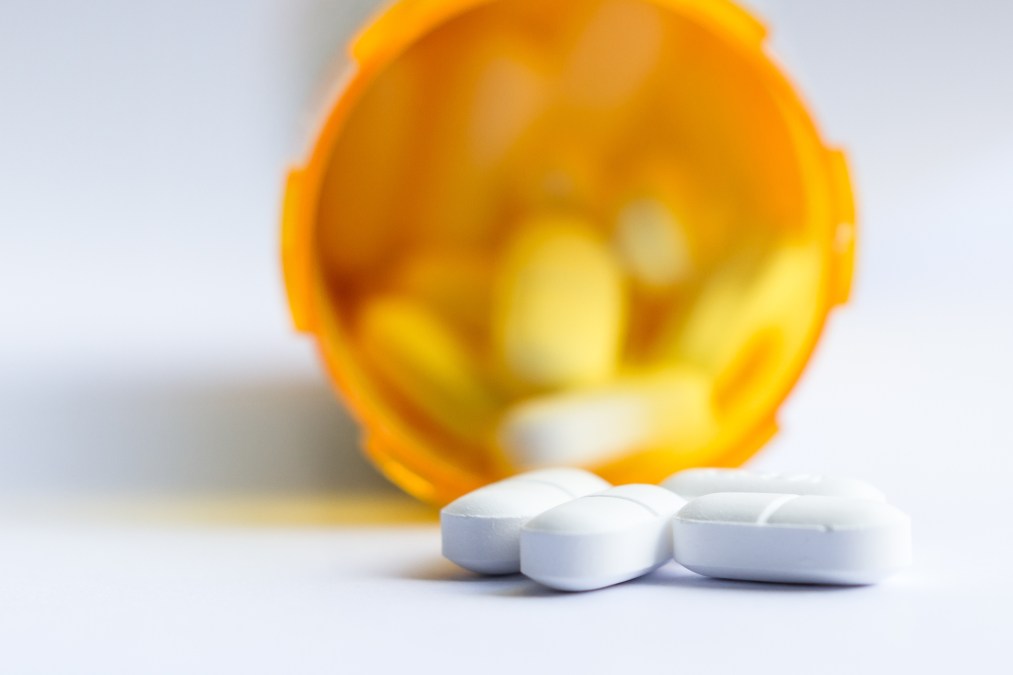Promising tech solutions to opioid crisis awarded in Ohio competition’s second phase

Ohio officials on Wednesday announced the winners of the second phase of an $8 million competition for projects tackling the state’s opioid abuse crisis. The 12 winning ideas, which each received $200,000, include an online platform that can monitor opioid use, a website that helps addicts find recovery service providers and an application to prevent relapse of opioid use.
The Ohio Opioid Technology Challenge is a three-phase, prize-based competition to identify technology-based solutions that address the state’s rising opioid addiction problem. According to the National Institute on Drug Abuse, 3,613 Ohioans died from opioid overdoses in 2016, giving the state a rate of 32.9 opioid-related deaths per 100,000 people, the third-highest rate of any state in the country.
The first phase of the challenge, announced in March , awarded five $10,000 prizes to a group of start-up companies developing ideas to prevent and treat opioid abuse. The second phase of the challenge sought out technology solutions from a global community. More than 50 proposals were collected before the challenge’s judges settled on the 12 winners.
Frank Topper, director of global programs at NineSigma, the consulting firm managing the competition for Ohio, said the second phase encouraged innovators to offer not just conceptual ideas, but working technologies. “The judges assessed the novelty of the approach, how well developed the technology is, the technical merit underlying scientific principles, the impact the solutions can have on the opioid problem and the feasibility of impact when fully developed,” Topper said in a Facebook video posted by TechOhio, the state agency sponsoring the competition. Each of the 12 winning ideas has its own solution for the escalating opioid epidemic. Brave Technology Coop, firm based in Vancouver, Canada, developed an online service that supervises people who use drugs in isolation. This platform helps to provide the person with a community support system and access to overdose prevention and response. Treating current users is the basis of many technologies in the competition, however, some companies took a different approach. Prapela, Inc., based in Concord, Massachusetts, developed a device that helps treat opioid-exposed newborns suffering from postnatal drug withdrawal syndrome. In the final phase of the competition, the most promising solutions from the 12 concepts awarded Wednesday will be chosen and funded to help refine them into product ready for the market. Winners will be announced July 2019.
The winners of the challenge’s second phase:
- Apportis LLC for an integrated platform that allows patients to connect electronically to licensed healthcare professionals and opioid addiction resources.
- Brave Technology Coop for an online platform for remote supervision of people who use drugs in isolation.
- DynamiCare Health for a digital platform that combines frequent monitoring with immediate incentives to support recovery.
- Innovative Health Solutions for a device for addressing symptoms of opioid withdrawal. A device that goes behind the patient’s ear contains an “electrical nerve field stimulator.”
- InteraSolutions for an opioid risk assessment screening app.
- OpiSafe.com for an automated patient monitoring system for opioid prescribers.
- Prapela, Inc. for a device to help treat opioid-exposed newborns with postnatal drug withdrawal syndrome.
- Relink.org for a website that helps people find recovery service providers.
- The University of Akron for a glove that helps first responders quickly identify the presence of an opioid on a person or surface. The glove changes color when in touches an opioid.
- University Hospitals for a computer-aided dispatch technology for real-time opioid surveillance and tracking.
- University of Wisconsin-Madison for a smartphone app to prevent relapse of opioid.
- Vuronyx Technologies for a paper-based device that allows first responders and medical professionals to quickly detect the presence of opioids.






